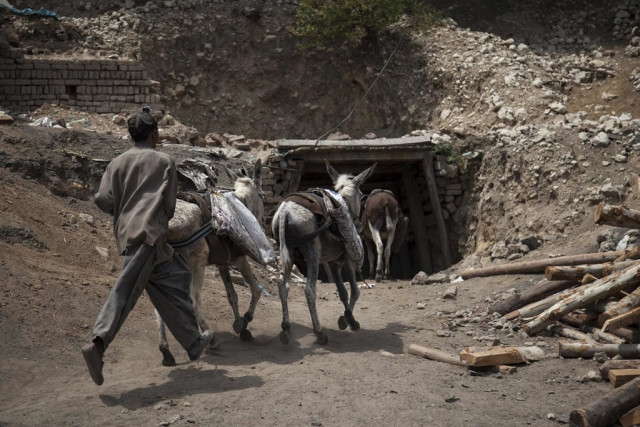Delays in legislation: Four years on, Sindh yet to legislate labour laws
The factory owners appealed to the labour courts to transfer their case to the NIRC.

Fifty-year-old Shamsur Rehman has been visiting labour courts ever since he was sacked by the textile factory he worked for in 2009.
His case is similar to the hundreds of others that are pending in labour courts due to the confusion in labour laws in the wake of the 18th Constitutional Amendment which devolved the labour department to the respective provinces. The Sindh government is yet to formulate its own laws even after the passage of four years.
"The courts are not deciding cases due to the ambiguity that has emerged after the 18th Amendment," said advocate MAK Azmati, a senior labour lawyer. As the Sindh government has not formulated its own laws, lawyers of some employers have challenged the federal laws' jurisdiction, he said, explaining the ambiguity. "The courts are delaying the cases due to this ambiguity."
Laws such as the Industrial, Commercial and Employment Standing Order Ordinance 1968, Companies Profit Act 1968, Workers Welfare Ordinance 1972, Workman Compensation Act 1923, Payment of Wages Act 1936, Shops and Establishment Ordinance 1969, Minimum Wages Ordinance 1961, Apprenticeship Ordinance 1962 and Road Transport Workers Ordinance 1961 are yet to be legislated or adopted by the Sindh Assembly.
"The laws currently being drafted will prove beneficial for the employers, not the workers," said Azmati. "The labour department is not even taking the representatives of labourers into confidence for the legislation." He cited the example of a new draft for the Sindh Companies Profit Act in which the number of employees in an establishment, on which the law will apply, has been increased from 50 to 100 employees.
An official of the Sindh Labour department, speaking on the condition of anonymity, blamed the provincial Law Department for the delays in legislation. He said that they have sent drafts of 36 labour laws for vetting but the department is yet to forward them to the provincial assembly. "The legislation now depends on the law department and the Sindh Assembly," he said. "The federal laws were too old to be used in the 21st century."
IRA-2012 and NIRC
The Sindh High Court sustained the validity of Industrial Relations Act-2012 in its judgment on August 5, 2014, saying that it does not destroy or usurp provincial autonomy. The IRA-2012, sustains the existence of the National Industrial Relation Commission (NIRC) - a federal government forum that decides the issue of trans-provincial establishment.
"The employers are using the IRA-2012 to delay justice and to prolong case trials, while the poor workers cannot afford such delays," said Manan Bacha, a lawyer who deals with labour cases. "The factory would submit applications in provincial labour courts, challenging its jurisdiction on the grounds that their company exists outside Sindh," he said.
The factory owners appealed to the labour courts to transfer their case to the NIRC. This proved to be time-consuming and was also an added burden on the labourers who wished to continue their cases. "A labourer from Sukkur cannot go to Karachi or Islamabad to attend the hearings due to lack of resources," he explained.
Bacha is hopeful that the IRA-2012 will be terminated and the NIRC will be abolished if challenged in the Supreme Court because it is contrary to the provincial autonomy. "The cases under trial in the labour courts and labour tribunal will be transferred to the NIRC after the SHC's decision." Were the decision challenged in the Supreme Court, all the cases will once again be transferred to the labour courts.
Published in The Express Tribune, August 20th, 2014.



















COMMENTS
Comments are moderated and generally will be posted if they are on-topic and not abusive.
For more information, please see our Comments FAQ